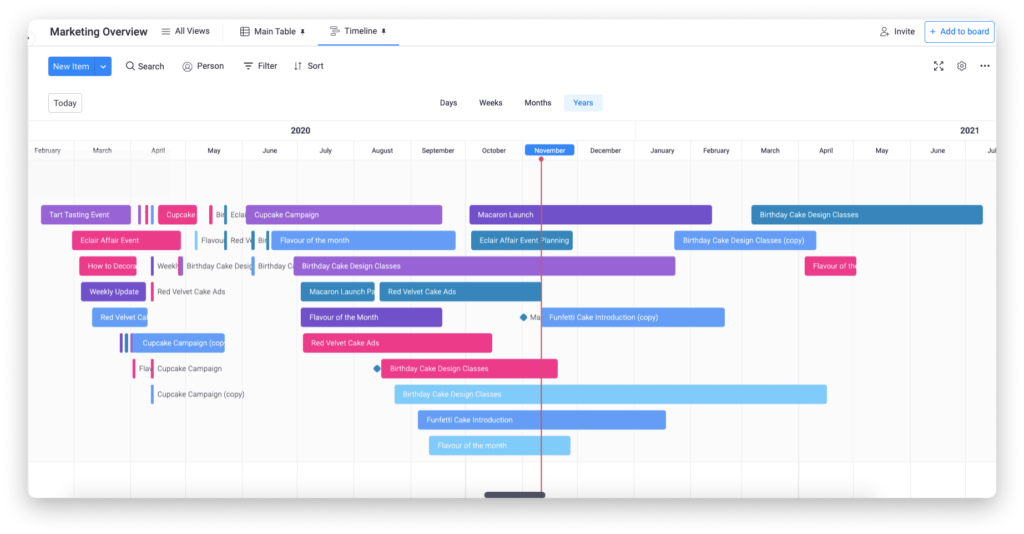
Have you ever wondered what exactly counts as project management experience? In the realm of project management, experience can come in various forms, and it’s important to have a clear understanding of what is considered valuable in this field. From leading a team on a complex project to coordinating tasks and timelines, project management experience encompasses a range of skills and abilities that showcase your ability to effectively manage and deliver successful projects. In this article, we will explore the different facets of project management experience and highlight the key aspects that employers look for when assessing your expertise in this field. So, if you’re eager to enhance your project management credentials and stand out in the competitive job market, let’s dive right in and uncover what truly counts as project management experience!

Understanding Project Management Experience
Project management experience is a crucial aspect of a professional’s career in the field. It encompasses a range of skills, knowledge, and experience that enable individuals to successfully plan, execute, and complete projects within the defined constraints of time, budget, and resources. Project management experience can be gained through various avenues, including education, certifications, work experience, leadership and management skills, industry knowledge, achievements, and the utilization of technology and tools. In this article, we will explore each of these aspects in detail and understand their significance in evaluating project management experience.
Importance of Project Management Experience
Having project management experience is highly valued in today’s competitive job market. It demonstrates an individual’s ability to effectively navigate through complex projects, coordinate with various stakeholders, and deliver successful outcomes. Employers often prioritize candidates with substantial project management experience as it reduces the risk of project failure and ensures efficient resource allocation. Additionally, project management experience instills leadership skills, strengthens problem-solving abilities, and enhances communication and collaboration skills. Therefore, acquiring and showcasing project management experience is vital for professionals looking to advance their careers in project management.

What Counts as Project Management Experience
Project management experience is not limited to holding specific job titles or working solely in project management roles. It can be acquired and demonstrated through various avenues. Here are some factors that contribute to project management experience:
Education and Certification
Relevant academic degrees in fields such as project management, business administration, or engineering provide a solid foundation for project management skills. These degrees often include coursework that covers project planning, risk management, stakeholder management, and other essential project management concepts.
In addition to formal education, certifications in project management are highly regarded and demonstrate a comprehensive understanding of project management principles and practices. Certifications such as the Project Management Professional (PMP) certification from the Project Management Institute (PMI) validate an individual’s knowledge and expertise in project management.
Work Experience
Direct project management roles, where an individual is solely responsible for managing projects from initiation to closure, are of great significance in acquiring project management experience. In these roles, professionals handle various aspects such as project planning, resource allocation, risk assessment, and monitoring progress.
Furthermore, cross-functional collaboration experiences contribute to project management experience. Working closely with other departments, teams, or stakeholders allows individuals to develop skills in coordination, communication, and conflict resolution, all of which are valuable in project management.
Another avenue for gaining project management experience is through technical or subject matter expertise. Professionals who possess in-depth knowledge in specific domains can effectively contribute to projects by providing expertise and guidance, thereby enhancing project outcomes.
Leadership and Management Skills
Project management involves managing teams, resolving conflicts, controlling budgets, mitigating risks, and effectively communicating with stakeholders. Demonstrating proficiency in these skills is essential to showcase project management experience.
Effective team management involves dealing with team dynamics, setting and managing expectations, and empowering team members to achieve project goals. Conflict resolution skills are crucial in managing disagreements and ensuring smooth collaboration among team members and stakeholders.
Budgeting and cost control skills help professionals effectively allocate project resources, monitor expenditures, and ensure projects are delivered within budgetary constraints. Additionally, risk management skills enable individuals to identify and mitigate potential risks, ensuring project success.
Communication and stakeholder management skills are vital for project progress. The ability to effectively communicate project updates, manage expectations, and address concerns enables smooth collaboration and stakeholder satisfaction.
Industry Knowledge and Specializations
Having industry-specific expertise is valuable in project management. Understanding industry trends, regulatory requirements, and specific challenges can significantly contribute to successful project execution. Professionals with industry knowledge can anticipate potential issues, tailor project plans accordingly, and ensure project outcomes align with industry standards and expectations.
Specialized project methodologies, such as Agile or Six Sigma, are also considered as project management experience. The ability to apply specific methodologies to project planning, execution, and monitoring demonstrates versatility and adaptability, making individuals suitable for handling diverse project types.
Scope and Scale of Projects
The size and complexity of projects undertaken contribute to project management experience. Successfully managing projects of varying sizes, from small-scale initiatives to large-scale endeavors, showcases an individual’s ability to adapt to different project requirements. Similarly, project phases and lifecycle experience, including initiation, planning, execution, monitoring, and closure, provide a comprehensive understanding of project management principles and techniques.
Demonstrable Achievements and Results
Successful project delivery is a significant indicator of project management experience. Accomplishing project objectives, meeting deadlines, and delivering within budget constraints showcase an individual’s ability to effectively plan, execute, and monitor projects.
Improving operational efficiency through project management demonstrates the ability to streamline processes, optimize resource utilization, and drive productivity. Identifying and implementing process improvements within projects further validate project management experience.
Client satisfaction is a crucial measure of project success. The ability to manage client expectations, deliver quality outcomes, and ensure client satisfaction showcases a professional’s project management acumen.
Finally, team performance is a testament to project management experience. Demonstrating the ability to lead and motivate teams, foster collaboration, and achieve desired outcomes indicates strong project management skills.
Technology and Tools
Proficiency in project management software and collaboration and communication tools is an important aspect of project management experience. Utilizing tools such as Gantt charts, task management software, and communication platforms demonstrates proficiency in project planning, monitoring, and communication. Familiarity with these tools signifies an individual’s ability to leverage technology for effective project management.
Professional Development
Continued education and training in project management contribute to project management experience. Participating in workshops, conferences, and industry-specific events enhances knowledge, keeps professionals updated with the latest project management practices, and fosters professional growth. Memberships in project management associations, such as the PMI, provide access to resources, networking opportunities, and industry insights, further enhancing project management experience.
References and Endorsements
Recommendations from employers or colleagues who have observed an individual’s project management capabilities validate project management experience. Such recommendations highlight a professional’s ability to manage projects effectively, collaborate with teams, and deliver successful outcomes.
A project portfolio showcasing successfully completed projects provides tangible evidence of project management experience. The portfolio demonstrates an individual’s ability to handle diverse projects and successfully execute them within defined constraints.
In conclusion, project management experience encompasses a wide range of skills, knowledge, and experiences gained through education, certifications, work experience, leadership and management skills, industry knowledge, achievements, use of technology and tools, continuous professional development, and endorsements. The multifaceted nature of project management experience highlights its significance in evaluating a professional’s ability to excel in project management roles. By focusing on each of these aspects, individuals can strengthen their project management experience and position themselves as valuable assets in the field of project management.








